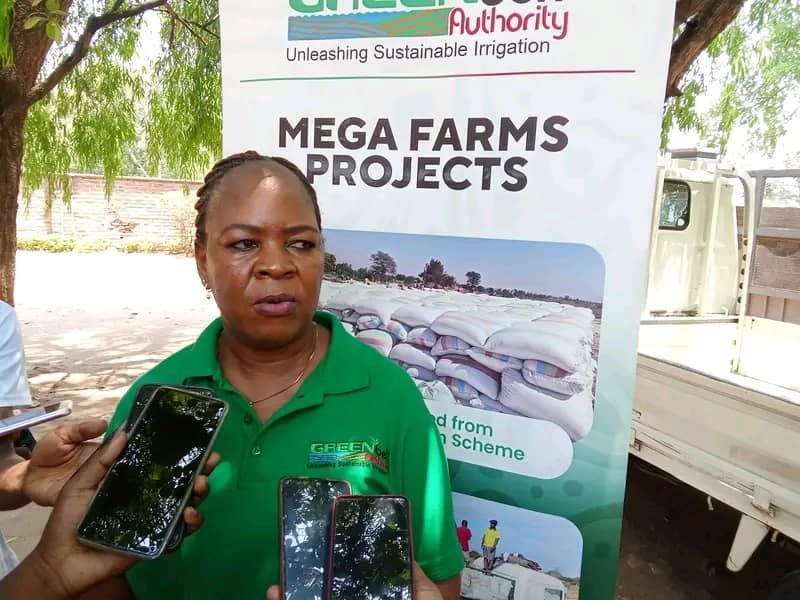By Burnett Munthali
The Green Belt Authority (GBA) is facing substantial setbacks in implementing its projects in Chikwawa district, as a wave of legal disputes with surrounding communities threatens progress. Rachael Sulungwe, GBA’s Director of Corporate Affairs, disclosed that 87 pending cases are currently clogging the courts, with affected communities seeking compensation for alleged damages caused by the project.
According to Sulungwe, residents in the area claim that project activities, including construction and land clearing, have caused significant disturbances, such as dust pollution and structural cracks in their homes. “Currently, we are dealing with 87 cases where community members are asking for compensation,” Sulungwe said during an interface meeting with local stakeholders. “The legal battles are delaying our ability to move forward effectively.”

Adding to these challenges, Sulungwe highlighted a troubling trend: certain agents associated with legal practitioners have reportedly been motivating communities to pursue litigation in exchange for a commission from potential compensation settlements. “These intermediaries are incentivizing legal action for their own financial gain,” Sulungwe noted, further complicating GBA’s efforts to resolve the disputes in a cooperative manner.
Although three of the cases have progressed to preliminary discussions, the situation remains largely unresolved. “Two cases have been discussed, and the third one was adjourned,” Sulungwe explained. GBA is currently collaborating with its legal team to consolidate the cases where possible, given their similarities, to streamline the court process and reduce procedural delays.
Senior Chief Ngabu, a local leader in the district, called the situation unfortunate, urging community members to prioritize open dialogue over court disputes. He stressed the importance of collaboration, suggesting that direct communication with GBA could address community concerns more effectively and allow projects to proceed smoothly. “We must work together and resolve these issues through communication, as it benefits the entire district,” he said, emphasizing that the ongoing court battles serve only to strain resources and delay progress.
The GBA’s projects in Chikwawa are part of a broader initiative to enhance food security and support economic development in Malawi. However, these legal challenges could significantly impact project timelines, cost, and overall effectiveness. With community disputes unresolved, both parties risk losing the benefits that these development efforts could bring to the region.
The ongoing stalemate underscores the need for a balanced approach to community engagement, where affected residents feel heard and adequately compensated while project implementers maintain the resources to complete their initiatives.
As GBA continues to face legal hurdles, there is a growing need for both parties to prioritize constructive dialogue and find mutually beneficial solutions. Resolving these issues outside the courtroom may pave the way for smoother project execution, enabling the Green Belt Authority to fulfill its mission in Chikwawa. Without collaboration and trust-building, the potential of these projects to uplift the community will remain unfulfilled.


